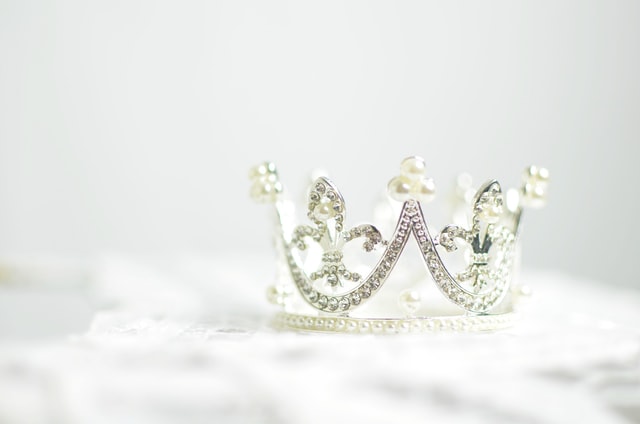Engagement and wedding bands made of white gold have grown increasingly fashionable. White gold will require frequent cleaning to keep its shine, since dirt, soap and lotion residue, and other oils can dull the surface of the metal over time. Cleaning white gold, on the other hand, is a straightforward process.
Keeping White Gold in Excellent Condition
- Keep the state of your white gold in good shape by cleaning it once a month
In the case of an item that gets a lot of use, such as a ring, you may even consider cleaning it every week or every other week. Cleaning your jewellery on a regular basis will keep it at its best; set a reminder on your calendar for a monthly cleaning to ensure that you don’t forget about it. Using abrasive cleaning chemicals might cause the rhodium plating to wear down more quickly, so avoid using them excessively.
- If soapy water doesn’t work, try a white gold cleaning product
Occasionally, white gold may have more buildup on it and will require a cleaner that is more durable than water and baking soda. Utilize a cleaning spray designed exclusively for white gold and follow the manufacturer’s instructions while cleaning your goods.Because they will eat away at the rhodium coating, several typical jewellery cleaning chemicals should not be used on white gold jewellery.
- If your white gold is becoming yellow, have a jewelerreplace it with rhodium
If you have white gold jewellery, this is not uncommon—over time, the rhodium will begin to wear away, making your jewellery appear worn down, no matter how well you clean it. Pay a visit to a respected jeweler and have the rhodium plating on your jewellery refreshed. A replating job can range in price from $40 to $135, depending on the scope of the work.
- Separate your white gold jewellery from your other precious metals to avoid scratching your pieces
Keeping white gold away from other, more durable items will help to prevent scratches and dings from forming. In the event that you have a jewellery box, designate a compartment for white gold pieces, or you could even wrap each piece individually in a little microfiber towel for added security. It should not be kept near a heating vent or a radiator, for obvious reasons.
- If you’re going to be swimming in chlorine, remove any white gold jewellery you’re wearing
You can lose rhodium plating from your white gold. If you will expose it to chlorine. Keep your white gold jewellery off when you’re swimming. If you want to keep your jewellery safe when visiting a public pool, store it in the glove compartment of your car or place it inside a bag before entering the water.
- We recommend that you use protective gloves if you are cleaning with abrasive cleaning agents
Beyond eating away at the plating, the chemicals can seep under mountings and cause them to erode, which might eventually cause stones to become loose.If you don’t want to wear gloves, simply make sure to take off any white gold jewellery you might be wearing before you clean them.
Baking soda
Combine pure baking soda and enough distilled water to make a paste in a small mixing dish; set aside.Gently clean the white gold portion of the necklace with a gentle toothbrush after scooping some paste onto it. Keep in mind that some metals and stones are delicate and can be easily damaged, so avoid rubbing them with other materials. Gentle scrubbing is recommended, with only enough soil removed to avoid your rhodium plating from becoming corroded or damaged.
To remove any leftover residue, swish the piece in a warm, distilled water
1.Wipe off your white gold jewellery with a soft cleaning cloth to remove any dust
Every night, wipe off your jewellery with a soft, lint-free cloth to get rid of any dirt or residue that has developed over the day and before bed.Never clean or dry your white gold jewellery with abrasive materials such as a paper towel. A too-abrasive cleaning cloth might cause the rhodium coating to wear away, which is bad news considering that gold is a soft metal (and hence readily scratched).
2. Take off all of your valuables before getting into the swimming pool
When it comes to white gold, chlorine may be extremely harmful, so avoid wearing your jewellery in the pool. Remove your jewellery before having a shower to be extra cautious, as tap water sometimes contains tiny quantities of chlorine.
3. Take any white gold jewellery that has been scratched to a jeweler to get it repaired
You should not wear a piece of jewellery that has previously been damaged or nicked again. In the event of a scratch, your jewellery is at risk of further damage, so get it checked out by a specialist as soon as you can. If required, a jeweler can also polish it to remove any abrasions or re-plate it with rhodium, depending on the specifics of the circumstance. And with that, I’ll leave it at that.
Summary
White gold jewellery may be cleaned with relative ease if you have the right products on hand. Furthermore, by cleaning off your jewellery after each usage, you can keep the natural sheen of your pieces. It is possible to use a clean microfiber cloth or a buffing cloth specifically intended for cleaning jewellery. That you can remove the natural oils and grime that collect on the jewellery on a regular basis is the most crucial and vital aspect of this situation.
If you like, you may also use an ultrasonic cleaner to clean your jewellery, as long as you apply a cleaning solution to guarantee that the jewellery is properly cleaned. The best course of action in the event that your white gold jewellery becomes scratched is to seek assistance from a professional jeweler.
